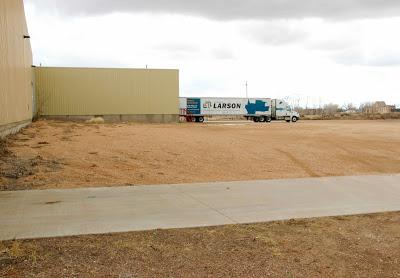
Boxelder on left. Did I mention that the Territorial Prison is just across the river? (far right, click image to view)
It must be spring—the construction crews are back, working on the new street nearby (featured here). A few weeks ago they took away the amazing Gomaco curb-and-gutter machine, and brought in truckloads of dirt. Landscaping and sound barriers are on the agenda. The street and bridge are due to open this summer—at last we will have a safe convenient bicycle/pedestrian path across the railroad tracks :-)
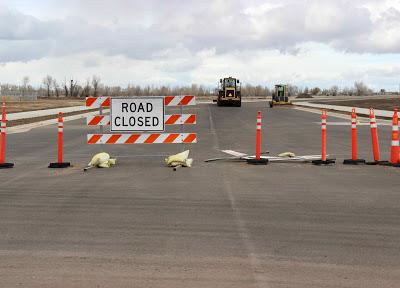 But as far as I can tell, the boxelder I’m following hasn’t changed at all since last month, though there’s now snow at the base. About three weeks ago we finally had a blizzard. It dumped almost a foot of wet snow, followed by several smaller storms—enough that patches remain in the boxelder’s shady nook. After such a dry winter, it was a blessing.
But as far as I can tell, the boxelder I’m following hasn’t changed at all since last month, though there’s now snow at the base. About three weeks ago we finally had a blizzard. It dumped almost a foot of wet snow, followed by several smaller storms—enough that patches remain in the boxelder’s shady nook. After such a dry winter, it was a blessing.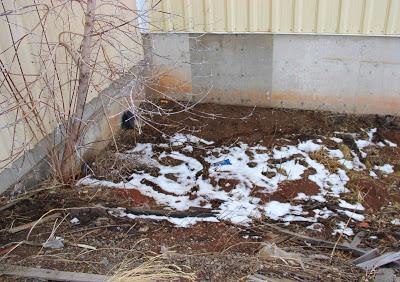 While the boxelder waits, other plants are starting their growing seasons. Grasses are greening up, and the Easter daisies in my wildflower beds are beginning to open.
While the boxelder waits, other plants are starting their growing seasons. Grasses are greening up, and the Easter daisies in my wildflower beds are beginning to open.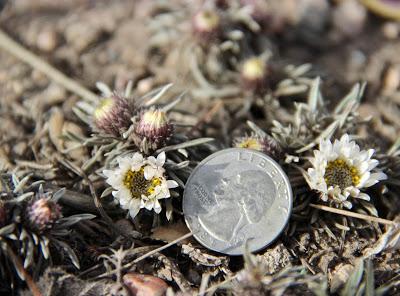
Easter daisies, Townsendia hookeri; coin is just under 1 in across (2.5 cm).
Our local spring parsley is blooming too, a small inconspicuous plant generally overlooked. For some reason it was named Cymopterus montanus even though it’s a prairie plant, so the powers that be have declared the official common name to be mountain spring parsley. Every year I resolve to photograph it but have failed until now, even though it grows just outside my fence, and being prostrate, is not disturbed by “spring breezes” (when I shot this photo, the wind was blowing 35 mph with gusts to 48).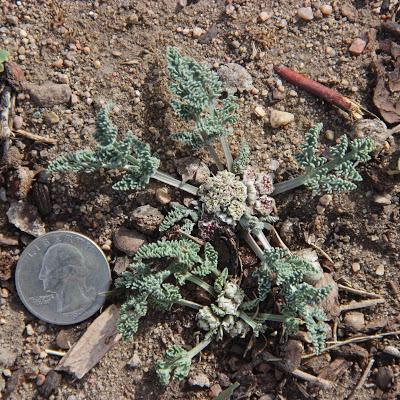
Spring parsley has clusters of tiny flowers, surrounded by papery bracts.
If you were hoping for a boxelder fix, don’t despair. I’ve included photos from TreeLib. Don’t know TreeLib? It’s great. Blake and Nathan Wilson (father and son) provide descriptions and high-quality photos of 380+ tree species, free for non-commercial use. Blake is a dendrologist and photographer, Nathan a web designer. They’ve put together an elegant easy-to-use site.
“Trees are our silent partners, sensing us as we move about, providing shelter, offering us beauty, and nurturing and protecting the earth.” (TreeLib home page)The Wilsons are Canadian, so Manitoba maple is the first common name listed for the tree we in the US call boxelder. But no problem—searching is based on scientific name, in this case, Acer negundo—same genus as maples (because it is a maple! … more below). It’s also possible to browse TreeLib by common name.
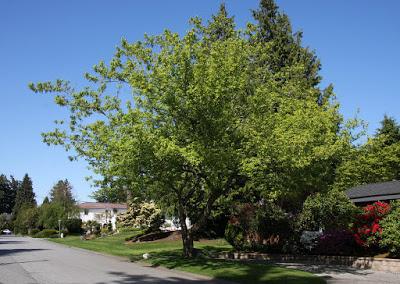
Manitoba maple in British Columbia. Hard to imagine my scruffy boxelder looking like this!
Boxelder leaves are compound, with 3-7 leaflets. You can arrange them to show that boxelder is indeed a maple (one of Mike’s ranger tricks).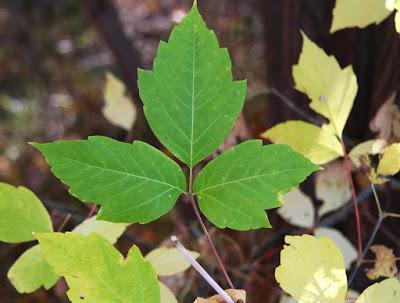
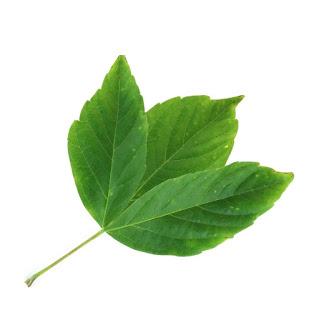
Convinced? (works better in real life)
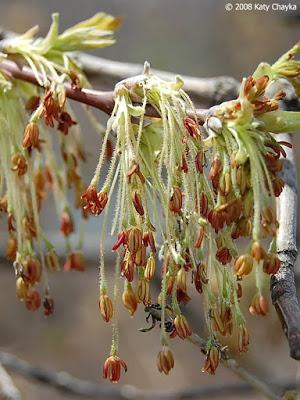
Pendulous clusters of tiny male flowers.
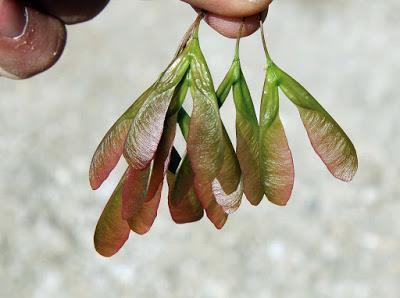
Samaras—paired winged fruit, also known as keys.
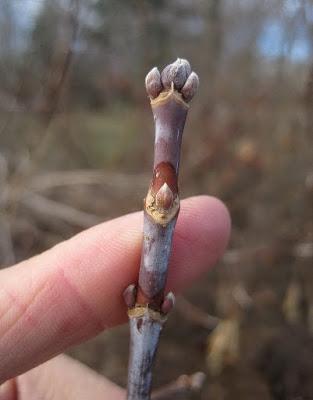
Buds just like the ones I check each month, hoping for action.
TreeLib says boxelder “is one of the most widespread and adaptable of all North American trees” (emphasis added). I can believe it!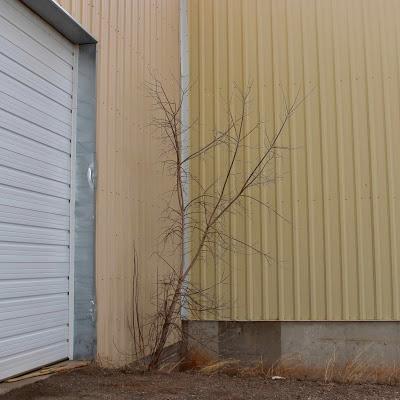
 For more tree-following news, check out the April gathering kindly hosted by The Squirrelbasket. All are welcome join us! … more information here.
For more tree-following news, check out the April gathering kindly hosted by The Squirrelbasket. All are welcome join us! … more information here.